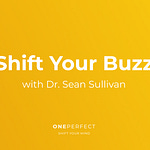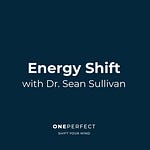Let’s take a long, deep breath.
—
I woke up to the news that Roger Federer is retiring today.
What a run.
What a gift he's been to all of us.
He ushered back in an era where you could be friends with your opponent — where you could honor your opponent.
Where you valued the work that they put in.
Where you knew that if you played at the top of your game against the best in the world, you were doing it just to give yourself a chance at winning, Roger used to say.
You worked all year round, all day, to give yourself a chance at winning.
And when it came to the match, you were able to put everything out of your head — animosity, any negativity — and play at the peak of your powers.
And still, with all of that you just put yourself in a position to win — to give yourself a chance to win.
And if you didn't win, you still succeeded.
That's what I love about Roger Federer — he is all about the present moment.
In a lot of ways, what he did was usher back in a previous generation of tennis.
The Australians of old who my dad would tell me about.
There was Rod Laver and Ken Rosewall.
This was when tennis was amateur, turning professional eventually.
And so they would travel around together as buddies.
They would practice together.
The tournaments were smaller so they would play against each other a lot.
They were building something together.
We saw the same thing happen on the women's side.
Women's tennis wasn't as big — there weren't as many players, but the passion was there.
And they got together.
A handful of them, led by Billie Jean King, of course.
Eight of them would travel to tournaments, and they would play together.
They became great friends.
They respected and honored each other.
I've never seen in my lifetime that tradition honored — what tennis really is — it’s community at root, it's putting forward your best, it's competing as hard as you can to give yourself that chance to win.
And when you win, there's nothing better.
You're the only one standing after this tournament whittled everyone down.
I always say that tennis is a painful sport.
After the first day of the tournament, half of the people go home.
Half the people have lost.
After the second day of the tournament you've gone down from 32 players to 8 players, so only a quarter are left.
It's really a difficult sport.
You need that camaraderie.
You need that friendship.
If you lose on the first day, you have a whole week until the next tournament.
You need to put your head down and keep training.
Keep that vision intact.
And somehow convince yourself that next week will be a better day.
Tomorrow will be a better day.
Federer lived that in front of us for decades, in spades.
He brought the sport to a new level — an entirely new pedestal.
And those who came after him have carried that mantle.
We’ll miss him from the sport.
I'm sure he'll be with us for a long time in whatever capacity he continues in.
Let's shift together.
Give ourselves a chance of being present in this moment.
Inspired by Roger Federer.
Another deep breath.
—
Close your eyes with me, if you want to.
Relax into the space that you're sitting in.
—
And just be here.
Feeling life.
—
Connecting to life.
—
What do you feel?
I feel gratitude for the decades of Roger Federer tennis that we got to witness.
Thank you, Roger.
Thank you for being such a big part of my life, and tennis life, and now what has turned into the life of the whole world.
—
Let’s sit in silence together for a few seconds.
Just be.
Listening.
Feeling.
Letting everything else go.
—
—
—
Perfect.
Can you notice how your body changed?
Do you feel recharged for the day?
Do you feel inspired by the bar that Roger Federer set for being a human, for being a tennis player, for living a life?
Great job.
Have a great day.
I'll talk to you soon.
Stay present,
Sean
P.S. SHIFT homepage can help you find the right Shift anytime.













